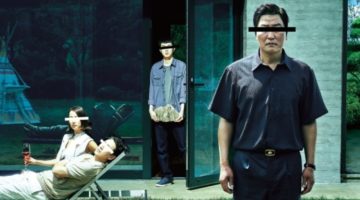Review: Miss Hokusai
There are a couple of scenes from the film Miss Hokusai that stand out for a film that is animated, even for a film that is Japanese (clearly Japanese animation is not entirely for kids).
The first shocking scene is about two thirds of the way into the film. It involves the main character of the film, the titular Miss Hokusai, (voiced by Erica Lindbeck in the dubbed version, although we watched the subtitled one). The character, named O-Ei, is commissioned earlier in the film to paint erotic photographs, (she is from a family of artists, including her father, Hokusai, of whom the audience initially believes the film is about). The customers are slightly unhappy with her erotic pictures because she personally knows very little of lust or of love. Not to worry, because in a very surprising turn, she turns to a male prostitute to rectify this issue.
For a scene that is set in the 1800’s, and is mentioned, animated, and moreso, doesn’t result in any sort of tragedy or bad ending, and the movie simply allows this display of eroticism, (and the scene itself is suprisingly erotic), and the film simply allows it to breathe, to exist, well, that’s quite a surprise in and of itself. It reaffirms the theory that this film is very much about the present even though it’s set deep in the past in the early 19th century in Edo, now known as Tokyo.
The film is timeless because of the final scene. The last part of a film which features a guitar riff heavy score features an extended pre-credit title card, which takes the movie into the present day. This film, directed by Keiichi Hara, is based on a manga from the 1980’s. That the film and manga are both made by a woman is perhaps a little too on the nose, as these types of scenes just seem to flow and possibly shouldn’t stand out, but here it is.
Lastly, the film is about the power of art, and seems to be a forerunner to its very manga on which it is based. It speaks to the power of art that these two works of art (three, perhaps), over a period of two hundred years, in a city with alternate names in entirely different regimes happen to feel so different, so out of place and yet intimately connected, this speaks to the power of the film.
[star v=4]





